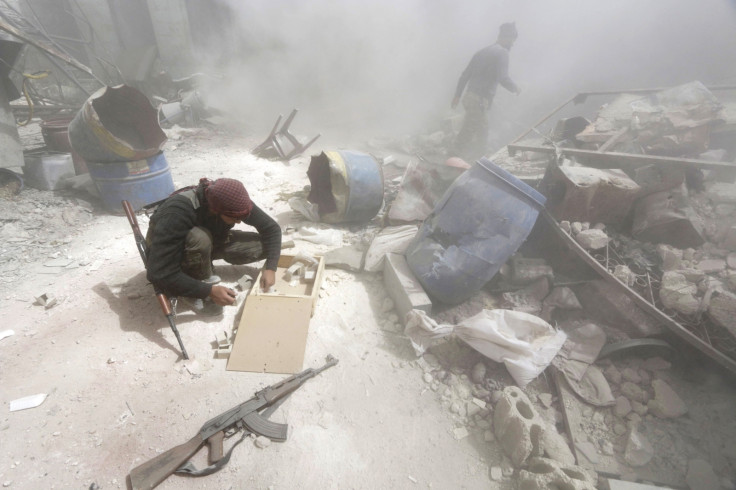Syria: Assad regime caught between Aleppo Islamist alliance offensive and moderate rebels' southern push

A new, Islamist-led rebel alliance has launched a military offensive on the Syrian government's strongholds in Aleppo, with activists describing fighting in some neighbourhoods as the most violent witnessed so far in the battle-torn city.
Heavy shelling of areas controlled by forces loyal to president Bashar al-Assad resulted in at least four deaths, with more than 70 people injured, the Syrian Observatory for Human Rights (SOHR) said.
Another five people were killed in clashes between opposite factions, according to the monitor.
The situation is Aleppo, Syria's second largest city, has long been deadlocked, with the government controlling the west and rebels the east.
The rebel alliance hopes to change the fighting balance, in what is seen as a key battle for the future of the country, as a defeat would be a major setback for Assad and his regime.
The collective, named Ansar Sharia, is made up of numerous Islamist groups, including al-Qaeda's official Syrian offshoot the al-Nusra Front. In an online statement it vowed to score a "victory for the Muslims of Aleppo", AFP reported.
The development came as Assad's troops are also facing increasing pressure in the south, with the moderate rebels attempting to seize Dera'a city and the surrounding province.
At the end of June the Southern Front Coalition, backed by Islamist groups, launched an operation dubbed the Battle of Southern Storm to attack key locations in the city, the Institute for the Study of War reported.
"Should they succeed, they may achieve enough momentum to advance to Damascus and may force the Assad regime to contract from outlying areas, including southern, eastern, and northern Syria where the regime is also challenged," Jennifer Cafarella an Evans Hanson Fellow at the Washington-based think-tank, wrote in a report.
"A successful operation by rebels in Southern Syria could therefore alter the stalemate of the Syrian war even though rebels across northern and southern Syria are not coordinated."
© Copyright IBTimes 2025. All rights reserved.






















